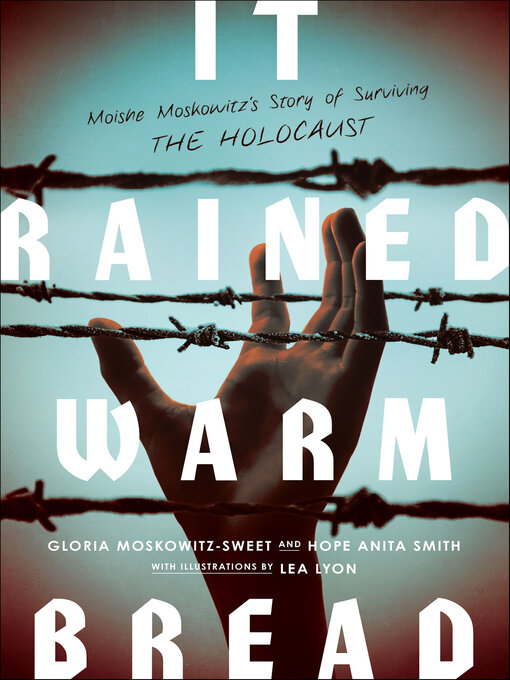A powerful middle grade novel-in-verse about one boy's experience surviving the Holocaust.
Moishe Moskowitz was thirteen when the Nazis invaded Poland and his family learned the language of fear. The wolves loomed at every corner, yet Moishe still held on to the blessings of his mother's blueberry pierogis, of celebrating the Sabbath as a family, of a loyal friend. But each day the darkness weighed more heavily on Moishe as his family was broken, uprooted, and scattered across labor and concentration camps. Just as his last hopes began to dim, a simple act of kindness redeemed his faith that goodness could survive the trials of war: That was the day it rained warm bread.
Gloria Moskowitz-Sweet relates her father's triumphant Holocaust story through the words of award-winning poet Hope Anita Smith. Deftly articulated and beautifully illustrated by Lea Lyon, this is an essential addition to the ever-important collection of Holocaust testimonies.
Christy Ottaviano Books
- What You Got Cooking?
- Available Now
- New EBook Additions
- New and Available Ebooks
- Most Popular
- Popular Nonfiction
- Try Something Different
- Let's Get Cooking!
- Every Day Is Free Comic Book Day at the Library
- See all ebooks collections
- Young Adult Fantasy Audiobooks
- Available Now Audios
- New Audiobook Additions
- New and Available Audiobooks
- Most Popular
- Popular Nonfiction
- Try Something Different
- See all audiobooks collections
- Most Popular
- All Magazines
- Business & Finance
- Entertainment
- Food & Cooking
- Health
- Home & Garden
- Lifestyle
- News & Politics
- Science & Technology
- Travel
- See all magazines collections


